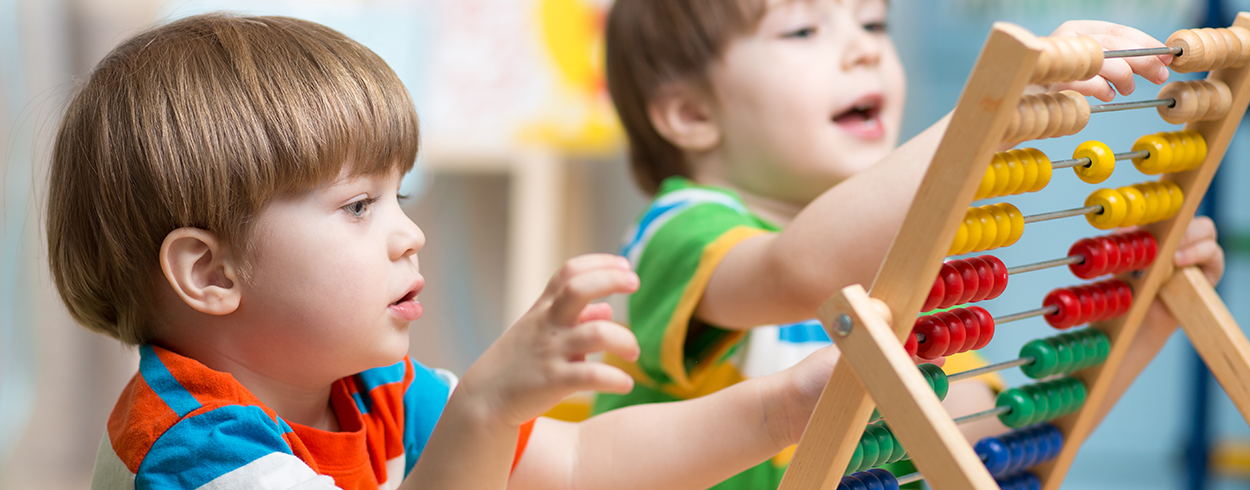Mathematics
Explore Mathematics activities
Preschoolers are fascinated by what is “bigger,” wanting “more” of their favorite things, and concerned about the number of things they receive is “fair”. These questions and activities are examples of young children beginning to explore math concepts. Besides being able to count, it is important to help children understand what a number means. Young children also begin to identify and name shapes and begin sorting objects. Math is everywhere in daily life so families can help children learn math concepts through everyday experiences.
Explore the Mathematics below.
Many difficult concepts come together in the understanding of number symbols and their meaning (quantity). You can help nurture these skills by incorporating some of these fun games into your day.
Shapes are the building blocks of our world--everything is made up of shapes. A house can be broken down to circles, squares, triangles and rectangles. Help your child be aware of the shapes all around.
An observant person sees patterns throughout their day. Thinking about patterns helps children make sense of mathematics. Challenge your child (and yourself) to find patterns as they naturally occur.
By including your child in the act of measuring and becoming aware of differences in size and quantity, your child will begin to understand how measurement is an important piece of our daily life.
Measuring and making "smart" guesses helps young children to understand basic math concepts and learn life skills. These activities happen naturally every day.
Children begin using their mathematical brain at a young age. We can foster learning by expanding their play with simple math.
Most preschool-aged children are not ready to fully grasp the concept of time. By breaking down predictable parts of their day, you will help your child begin to make sense of time.
Look for numbers with your child throughout the day and during ordinary activities.
Sprinkle counting and counting words into your daily activities
There are special words for comparing difference in size. Introduce your child to many comparison words and use them in conversation as you interact with the world around you.
Children look at items and compare by understanding difference, (big/small, tall/short). Comparison activities will provide the necessary understanding of key math concepts.
Sorting and classifying things by one or more traits - something they have in common is important to later math skills.
Saying the last number in the number sequence (1, 2, 3, 4, 5, 6, there are 6 cups) and realizing that is how many objects in a set is understanding number and quantity. By introducing this concept into everyday activities you help increase your child's math skills.
